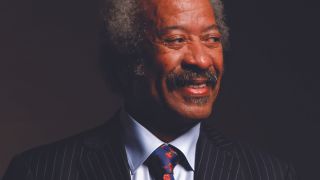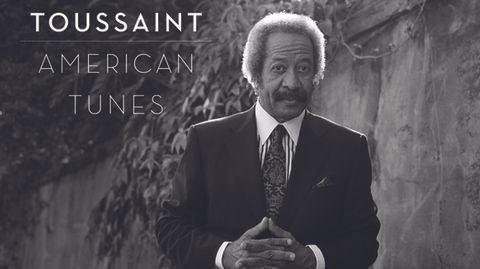
On the cover of Paul Simon’s American Tune that serves as this album’s title track, Allen Toussaint barely plays a lick of piano until two minutes in. Instead, the focus is on his vocals, which sound hopeful but weary. When the piano does come in, it hits hard: Toussaint’s right hand pounds an arresting chord just after he sings ‘I dreamed I was dying’, and you’re suddenly aware that you’re in the hands of an interpreter who knows this song on a deep, almost instinctive level – not too surprising, considering Toussaint contributed horn charts to There Goes Rhymin’ Simon, the album on which American Tune originally appeared.
Toussaint was an expert arranger, having shaped so many of the Crescent City’s defining 60s hits, from Ernie K-Doe’s Mother-in-Law to Lee Dorsey’s Working In The Coal Mine. When Toussaint died last November aged 77, he’d just completed work on this collection, his second full-length with producer Joe Henry, following 2009’s The Bright Mississippi. Like that album, American Tunes is jazz-based, but this time there’s even more emphasis on Toussaint’s tasteful playing. Where its predecessor sometimes used trumpet, sax or clarinet as co-lead instruments, the horns here merely add shade to songs such as Billy Strayhorn’s dreamy, effervescent Lotus Blossom and Duke Ellington’s sacred Come Sunday. The latter number is one of two featuring vocals by Rhiannon Giddens, who steals the show with her opera-trained soprano.
Most of the album is instrumental, and Toussaint is at his best on the solo piano tracks, boosted by bright production that brings out the rich nuance in his trills and ragtime-influenced runs. On Earl King’s Big Chief he proves, as always, a genius at syncopation, while Professor Longhair’s Mardi Gras In New Orleans has him tinkering with dynamics and tempo like a watchmaker fine-tuning his gears to build the perfect timepiece.
Toussaint’s original Delores’ Boyfriend is breezy and funky, and the piano-only reworking of his classic Southern Nights is revelatory in the way it highlights the tune’s pentatonic melody. Here and on Louis Moreau Gottschalk’s Danza, guest Van Dyke Parks’ piano lines sidle up to Toussaint’s, retreat and then return, like shy lovers flirting before finally making contact. It’s a masterpiece of collaboration. As Toussaint’s final recording, American Tunes is a beautiful piece of work that cements the pianist’s reputation as a master of grace, sophistication and class.

